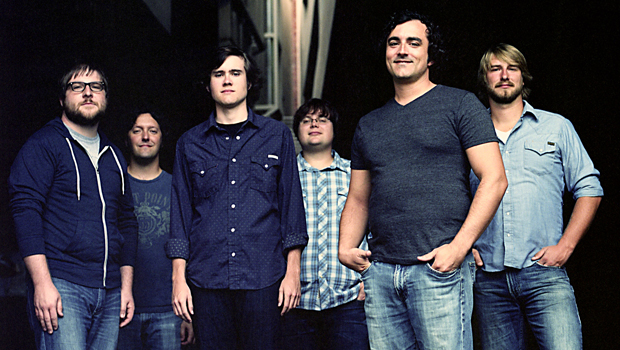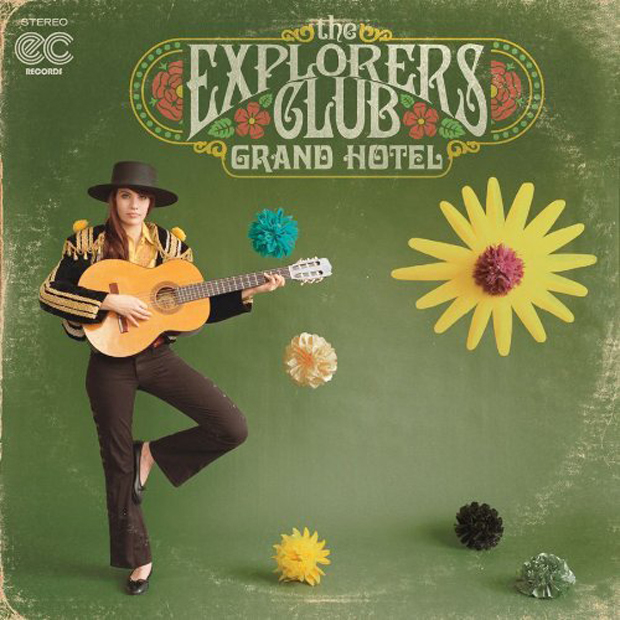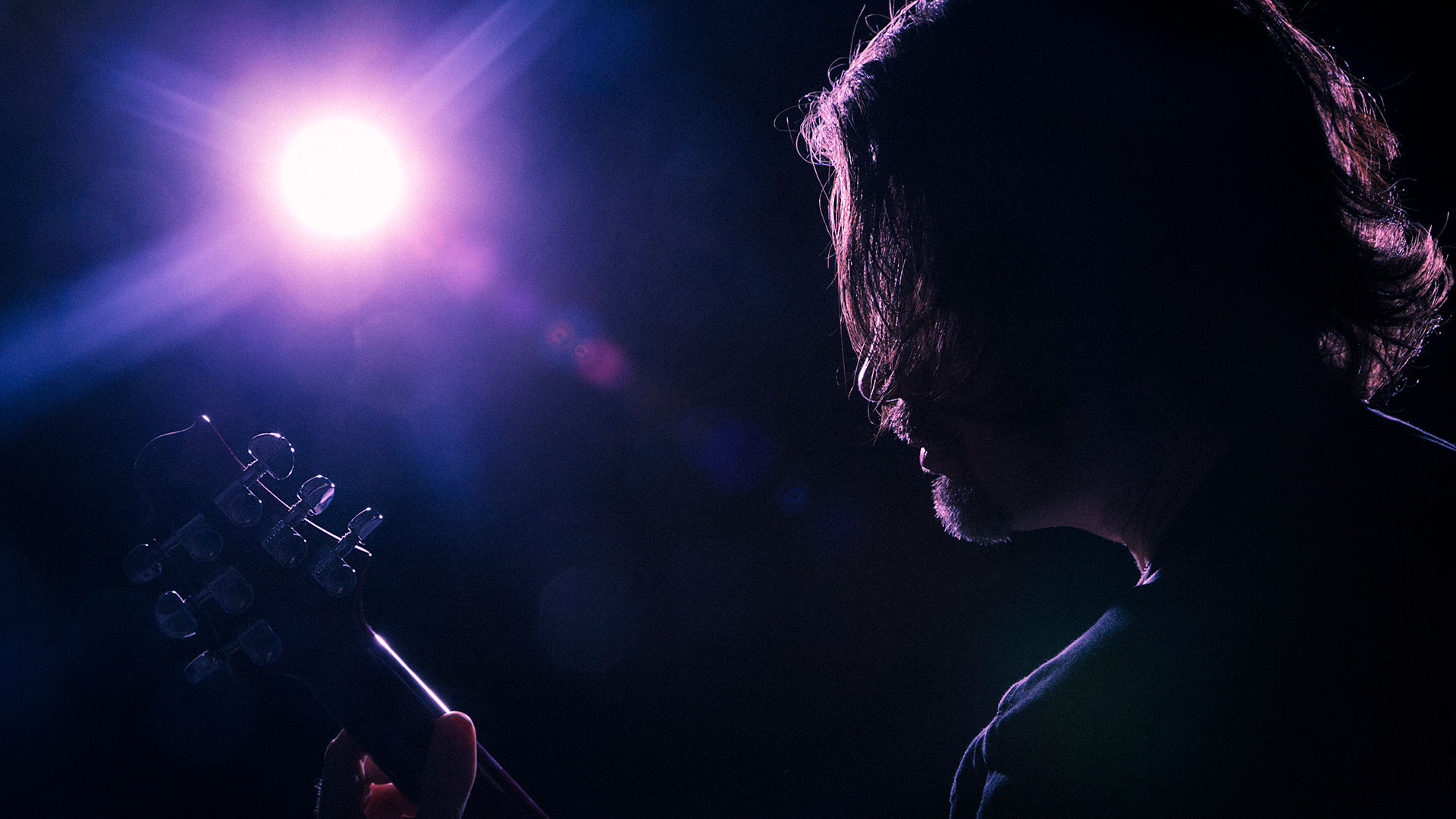Interview: Jason Brewer of The Explorers Club Discusses Their New Album, 'Grand Hotel'
All the latest guitar news, interviews, lessons, reviews, deals and more, direct to your inbox!
You are now subscribed
Your newsletter sign-up was successful

The Explorers Club, a six-man band from Charleston, South Carolina, have a sound that's unique in the 21st century -- mainly because it is heavily influenced by the vocal harmony styles and production qualities of The Beach Boys and other mid-'60s pop bands.
The band -- Jason Brewer (guitar, keyboards, vocals), Dave Ellis (guitar, mandolin, accordion, percussion, vocals), Dave Rellington III (bass, vocals), Justin James (guitar, steel guitar, vocals), Paul Runyon (keyboards, vocals) and Kyle Polk (drums) -- employ vintage gear and retro-inspired album art to set -- and get -- the tone, as seen and heard on their latest album, Grand Hotel, which will be released February 14 via Rock Ridge Music.
Guitar World recently spoke to Brewer about his love and respect for '50s and '60s music, something that started when he was a child.
GUITAR WORLD: What is it about The Beach Boys' sound that has so clearly inspired The Explorers Club?
I think what really inspired us to do that more old-school sound was I heard a lot of those records growing up from my neighbors, parents, friends of ours that are from that generation. I just heard it and really kind of resonated with me and I said, “Well, that’s what I want to do.” I was about 7 when I heard The Beatles and the early surfin’ Beach Boys records. I said, “I want to play music like those guys.” It just all really stuck with me. There’s kind of a timelessness of that music, and it’s just incredible, the musicality of it, the melodies, even the guitar lines. All that stuff was just right up my ally.
So you first heard these bands when you were young; is that also when you picked up the guitar for the first time?
I really picked up the guitar when I was about 10, a few years later. When you’re that young, it’s really hard to concentrate because you had so many other things going on when you’re 7. By the time I was 10 or 11, I really got serious about it. I started learning Beatles songs on guitar, Chuck Berry. My goal when I first started playing when I was 10 was to learn ‘Johnny B. Goode.’
All the latest guitar news, interviews, lessons, reviews, deals and more, direct to your inbox!
My first guitar was a Fender Stratocastor made in Korea. It was perfect for what I wanted to do. It was a pretty versatile guitar and really nailed that early sound. I guess it just kept snowballing from there that I wanted to play that kind of music because the guitar itself played that surf sound so well.
What gear do you use today to get that older sound?
To get that early '60s sound, all the gear we use guitar-wise is either from that era or a lot of it sticks to the design of those old instruments. I play a 1950s reissued Telecaster made by Fender. One of the other guys plays a 12-string Epi Rivera. We also use an old electric Fender bass. So everything we use is pretty close to what was used then. Even in the studio we use old Silvertone amps, old Fender amps; just everything really authentic with the guitar sound.
We have a keyboard player and there’s a lot of electric piano and organ, and our guitar player plays an old 1950s double-neck steel guitar. He’s been touching the baritone guitar and a mandolin. I really have wide range. Anything we can get our hands on.
I know you write some of the music, but do you also produce?
Yes, I do all that stuff. I feel like I’m a guitar player but truthfully I’m much more of a studio producer, arranger kind of guy. That’s where I really find myself, more so than in the performance end of things. I also play the piano, and everybody in the band is pretty multi-tasking with a lot of different instruments. We’re really able to expand and use our different abilities.
As far your fan base, do you feel you've reached some original Beach Boys fans?
I think people who listen to us are really all over the map. We have fans in their 20s and 30s to college kids, and people who are our parents' and grandparents' age. I feel like we have the edge with the younger people because we are younger, and then we have that edge with the older people as well.
Your music has been featured in several TV shows, including Bored to Death and How I Met Your Mother. How has that experience helped you?
It has really helped us get a broader audience. It was exciting to hear our music on TV -- and having people hear our music, whether they knew it's us or not.
What can you tell me about your new album, Grand Hotel, which comes out February 14?
It’s a very different record then from our first. It’s very California-sounding, but it’s all over the map musically. It’s got salsa, jazz, rock and roll, '50s rock, instrumentals -- it’s just a big musical vacation. All kinds of instruments everywhere, lots of guitar, classical guitar ... I guess just to sum it up, it's kind of a soundtrack for a vacation getaway. Throughout the record, you kind of hear stylistic changes as if you’re going into different rooms of the hotel.
The Explorers Club are on tour through early March:
Feb. 10: Vinyl, Atlanta, GA
Feb. 11: The Casbah Durham, Durham, NC
Feb. 12: Johnny Brendas, Philedelphia, PA
Feb. 13: Maxwell’s, Hoboken, NJ
Feb. 14: The Lizard Lounge, Boston, MA
Feb. 15: Rockwood Music Hall, New York, NY
Feb. 16: Spike Hill, Brooklyn, NY
Feb. 17: The Saint, Asbury Park, NJ
Feb. 18: The Dunes, Washington DC
March 3: The Pour House, Charleston, SC
Group photo: Matthew Carter

